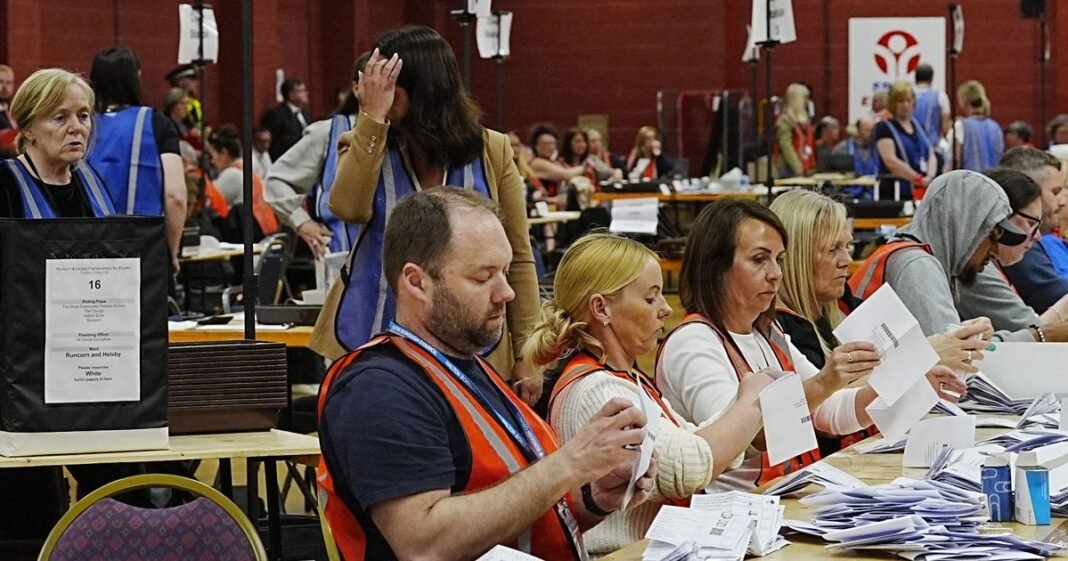Voters will have to wait for the results to find out what the political landscape will look like following the contests this morning.
This is because the local elections 2025 don’t have exit polls, unlike the case in general elections. The situation therefore won’t become clear until ballot boxes are opened and the votes start getting totted up in the morning.
Local elections are typically harder to predict than general elections too, because they usually have a much lower turnout, rarely reaching above 40 per cent. The exit polls in the general elections benefit voters – and the media – because they reveal the predicted results as soon as the voting ends.
Exit polls are compiled through interviews with voters as they leave polling stations across the country. These are usually pretty accurate at revealing whether there will be a majority government or a hung parliament.
As the Manchester Evening News reports, the first stream of results will start to emerge from around 2am on Friday. Voters living in the constituency of Runcorn and Helsby, in Cheshire, will be particularly keen to keep an eye on things as former MP Mike Amesbury stood down after being given a prison sentence for assaulting a constituent.
In total, votes have been cast for 1,631 council seats, 23 county, unitary and metropolitan councils, and six directly elected mayors. Of the 23 local authorities holding elections, 14 are county councils: Cambridgeshire, Derbyshire, Devon, Gloucestershire, Hertfordshire, Kent, Lancashire, Leicestershire, Lincolnshire, Nottinghamshire, Oxfordshire, Staffordshire, Warwickshire and Worcestershire.
The others are the unitary authorities of Buckinghamshire, Cornwall, Durham, North Northamptonshire, Northumberland, Shropshire, West Northamptonshire and Wiltshire, plus Doncaster Metropolitan Council.
Every seat on all of the combined 23 authorities is up for grabs, but boundary changes mean some areas will be electing fewer councillors than before.
The six mayoral elections include four combined authority mayors in Greater Lincolnshire, Hull and East Yorkshire, Cambridgeshire and Peterborough, West of England, plus two Metropolitan Borough Mayors in Doncaster and North Tyneside.
The series of elections could see Nigel Farage’s Reform UK deal blows to both Labour and the Conservatives. Kemi Badenoch faces her first test as Tory leader with the party braced for a difficult set of results, with both Reform and the Liberal Democrats hopeful of stealing council seats last contested in 2021 at the height of Boris Johnson’s popularity with Conservative voters.
Mr Farage said he wanted to “smash the two-party system”. However, Keir Starmer said voters faced a clear choice between Labour politicians “working together to bring change to Britain” or “chaos and division with parties who have no plan for change”.
At Reach and across our entities we and our partners use information collected through cookies and other identifiers from your device to improve experience on our site, analyse how it is used and to show personalised advertising. You can opt out of the sale or sharing of your data, at any time clicking the “Do Not Sell or Share my Data” button at the bottom of the webpage. Please note that your preferences are browser specific. Use of our website and any of our services represents your acceptance of the use of cookies and consent to the practices described in our Privacy Notice and Cookie Notice.



